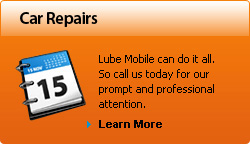5 Quick And Easy Steps To Clean Your Engine
Cleaning your car engine is not something that you should undertake lightly. The truth is you can do a lot of damage to your engine if you do not take adequate precautionary steps. Having said that, there are some benefits which you will derive from having a clean engine. Things like increased resale value, detecting potential problems before they escalate out of control and keeping your car in good running order.
In this article we will look at each of these benefits and then go over some of the methods you can use to keep your engine in a pristine condition. Remember at all times that you should always consult with your mechanic before embarking on a major cleaning program so that he or she can alert you to potential problems.
Every car has its own idiosyncrasies and you should be careful to follow manufacturer?s instructions.
- Be careful when using water blasting equipment in and around your engine. It is much better to take a manual approach and wash each part of the engine carefully and ensure that you avoid sensitive engine components like the alternator, battery terminals or fuse box. Removing excess grease, dirt and oil will make your engine look well cared for to any potential buyers, but if you damage the engine when doing so, you will have lost more than you gain.
- If you are cleaning around sensitive engine parts make sure you cover them with cling film and protect them against any water damage. Also make sure that the battery terminal has been disengaged and that it is also covered to protect from contact with water.
- Make sure your car is parked in an area where you will not cause any environmental damage. As grease and oil is removed from the engine it should be contained in a manner which will allow you to dispose of it safely after you have finished. This means keeping it off the grass and away from any drains.
- The carburettor and any air intake, especially on older vehicles, will need to be covered with aluminium foil to give it added extra protection from cleaning products.
- Use a heavy duty brush and a strong solution of detergent and water to clean heavily impacted areas, being careful always to avoid excessive splashing the fluid on to any other engine part.
When you have finished you should carefully wash the area with clean water once again being careful to avoid contact with any sensitive engine part. It is best to use a wet cloth for this purpose and to avoid any high pressure equipment.
Remember that the electronics of most modern cars is highly sensitive requiring the utmost care. Any cleaning products or methods that interfere with this can easily cause damage, so it is best to leave this to the experts.
Now that you know the careful steps you should take when cleaning your engine, you may decide you can still do this for yourself or engage the services of a professional mechanic or car cleaning expert who can do it for you.




